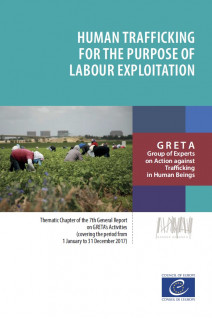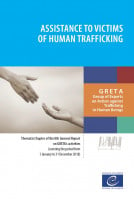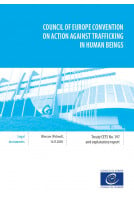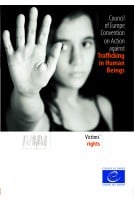2017 saw the adoption of the landmark judgment of the European Court of Human Rights in Chowdury and Others v. Greece, in which the Court found for the first time a violation of Article 4 of the European Convention on Human Rights in respect of human trafficking for the purpose of labour exploitation. The judgment is an important contribution to European human rights law in recognising the complex and subtle forms of coercion that underpin trafficking for the purpose of labour exploitation.
GRETA has dedicated a thematic section in the 7th General Report (covering the period from 1 January to 31 December 2017)to the issue of trafficking for the purpose of labour exploitation, based on the country evaluation reports published until the end of 2017.
EXECUTIVE SUMMARY INTRODUCTION CRIMINALISATION OF HUMAN TRAFFICKING FOR THE PURPOSE OF LABOUR EXPLOITATION TRENDS REGARDING TRAFFICKING FOR THE PURPOSE OF LABOUR EXPLOITATION POLICY AND INSTITUTIONAL FRAMEWORK FOR ADDRESSING TRAFFICKING FOR THE PURPOSE OF LABOUR EXPLOITATION PREVENTION OF TRAFFICKING FOR THE PURPOSE OF LABOUR EXPLOITATION
Awareness raising and training
Targeted prevention for groups at risk
Labour laws and inspections
Measures to discourage demand, including through public-private partnerships
IDENTIFICATION OF VICTIMS OF TRAFFICKING FOR THE PURPOSE OF LABOUR EXPLOITATION ASSISTANCE TO VICTIMS OF TRAFFICKING FOR THE PURPOSE OF LABOUR EXPLOITATION COMPENSATION AND LEGAL REDRESS NON-PUNISHMENT OF VICTIMS OF HUMAN TRAFFICKING INVESTIGATING AND PROSECUTING CASES OF TRAFFICKING FOR THE PURPOSE OF LABOUR EXPLOITATION CORPORATE LIABILITY








